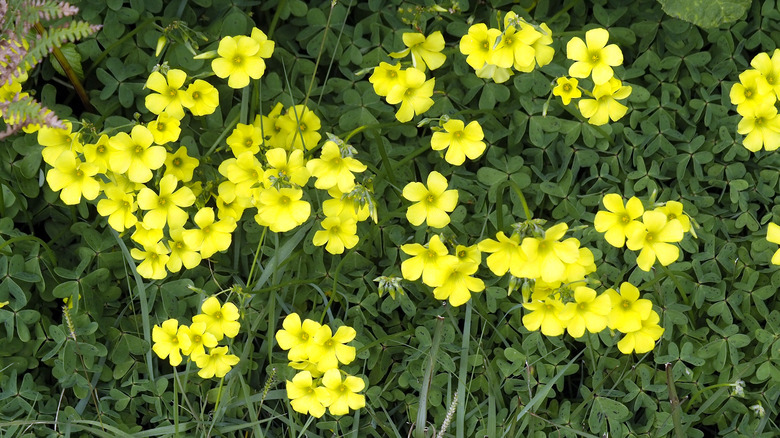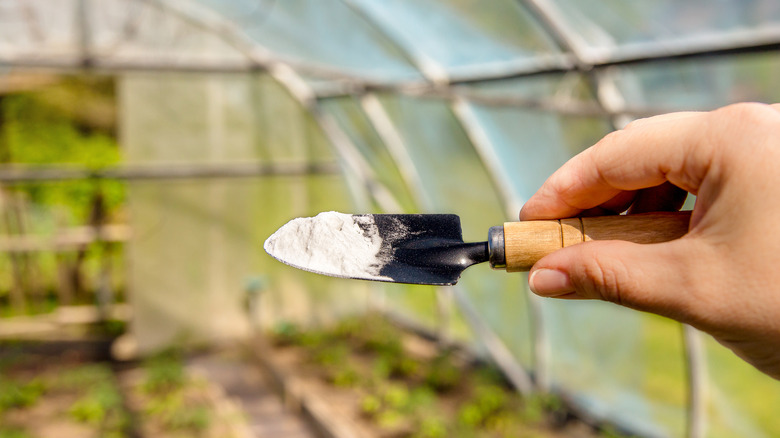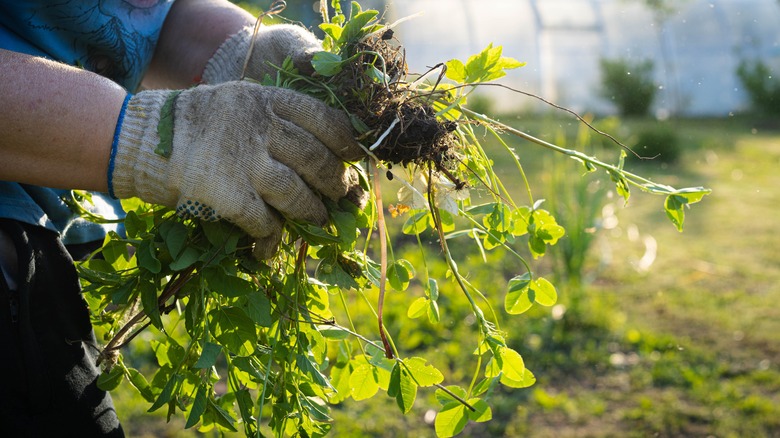Can You Remove Oxalis Weeds With A Natural Solution Or Is It Too Stubborn?
Oxalis, also known as yellow wood sorrel, is a delicate ground cover that gardeners love to hate, as it's a persistent weed that seems to reappear no matter what you throw at it. Its shamrock-like leaves and tiny yellow flowers might look charming at first, but don't be fooled: oxalis weeds can quickly spread, crowding out your other plants and taking over garden beds and lawns. So, what can you do? Many people turn to natural solutions, hoping for a safe and effective way to get rid of this persistent weed.
Two common household remedies often mentioned are baking soda and vinegar. But how effective are they, and can they truly banish oxalis for good? Using baking soda to eliminate annoying weeds like oxalis is popular among organic gardeners because readily available and won't introduce harmful chemicals into the environment. Due to baking soda's high salt content, it's able to dry out the weeds, and eventually killing them. To treat oxalis with baking soda, you'd typically mix 1 tablespoon of baking soda with a bit of water to make a paste, which you then spread over the weed's foliage. Alternatively, you can dissolve the baking soda in water and spray it over a larger patch of oxalis for more coverage.
Limitations of natural oxalis killers
While baking soda can cause visible damage to the oxalis foliage, it doesn't penetrate deep enough to eliminate the weed entirely. The primary reason oxalis is so tough to eradicate is due to its underground bulbs and seeds. Even if the leaves die off, the bulbs remain unaffected by the baking soda treatment and are often ready to sprout new growth. This regrowth means you might find yourself battling the same oxalis plants again and again. So, while baking soda can help weaken the plant and control its spread temporarily, it's not a one-and-done solution for getting rid of oxalis permanently.
Another household ingredient touted for weed control is vinegar, which, thanks to its acetic acid, can scorch plant leaves upon contact. For oxalis, you can use household vinegar or opt for stronger horticultural vinegar for quicker results. When sprayed directly on the oxalis leaves, vinegar causes the foliage to brown and shrivel, which gives the appearance that the weed is dying off. This approach is a quick fix for visibly reducing the presence of oxalis in your garden, especially if you're dealing with a small patch.
However, like baking soda, you should think twice before using vinegar to kill weeds. While the acidic nature of vinegar is effective at burning the leaves, it does not reach the oxalis bulbs or roots beneath the soil. In fact, because vinegar only impacts the foliage, it can encourage the plant to return more vigorously, as the roots are not killed off. Additionally, be cautious when using vinegar around other plants, as it is non-selective and will damage any foliage it touches.
Is a natural solution enough?
If you're looking for the least harmful ways to kill weeds in your lawn, it might be disappointing to hear that neither baking soda nor vinegar will completely eradicate this weed. These treatments can control and damage the foliage, giving the appearance of progress, but they won't kill off the underground bulbs or seeds. This resilience makes oxalis notoriously difficult to fully eliminate with surface-level treatments alone.
For those who prefer natural gardening, an integrated approach can be more effective. Try combining the baking soda or vinegar treatment with consistent digging to remove as much of the root system as possible. Mulching over the area afterward can help suppress new growth. Over time, with consistent effort, you may be able to exhaust the plant's underground resources. Some gardeners even opt for solarization — covering the area with plastic to bake the soil and kill any remaining bulbs or seeds. While these methods require patience, they offer a chemical-free way to keep oxalis at bay. In the end, the stubbornness of oxalis lies in its ability to bounce back from even the toughest of natural solutions. While baking soda and vinegar can be useful tools in your garden arsenal, they're best seen as part of a larger strategy for control rather than a permanent fix.


